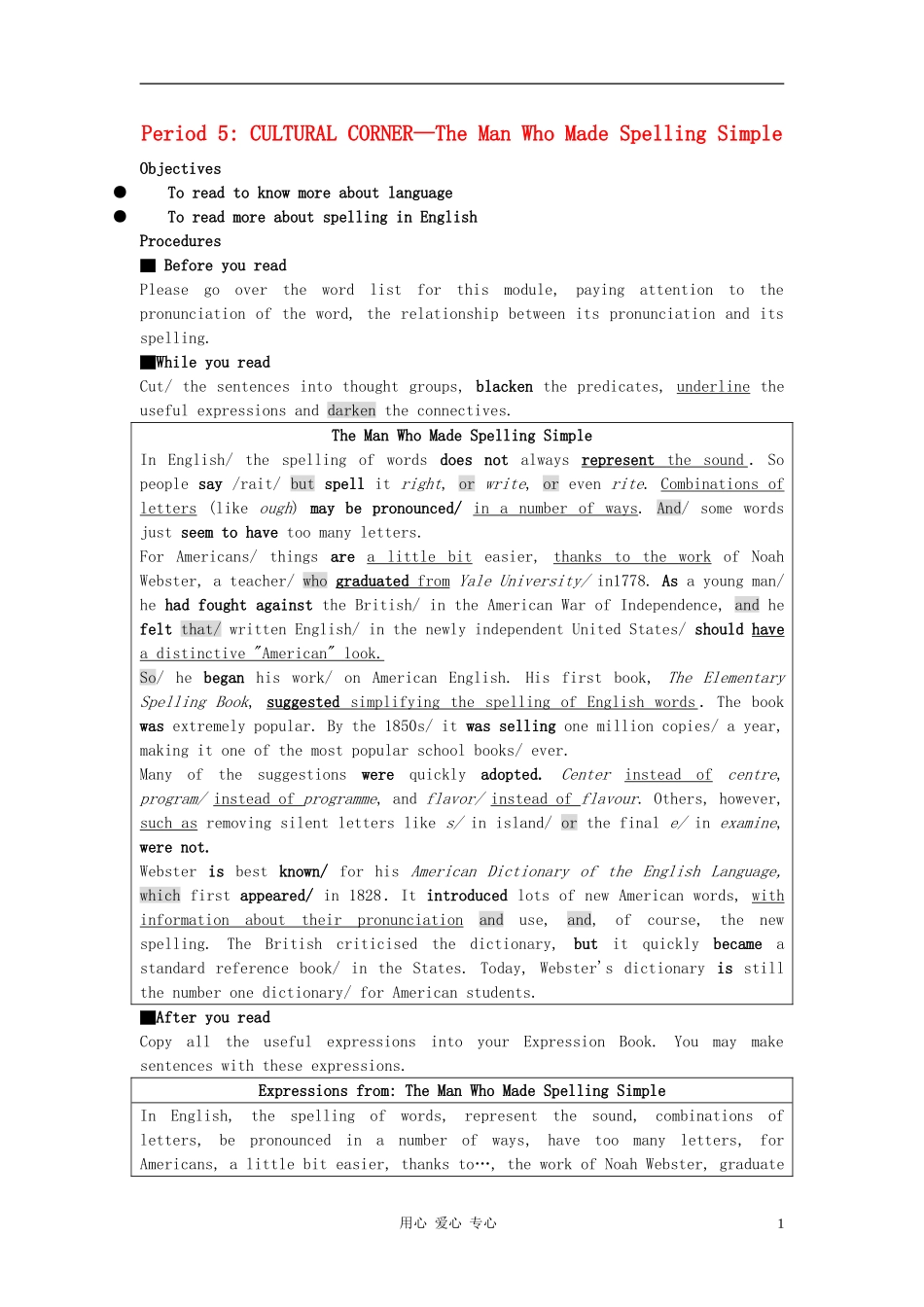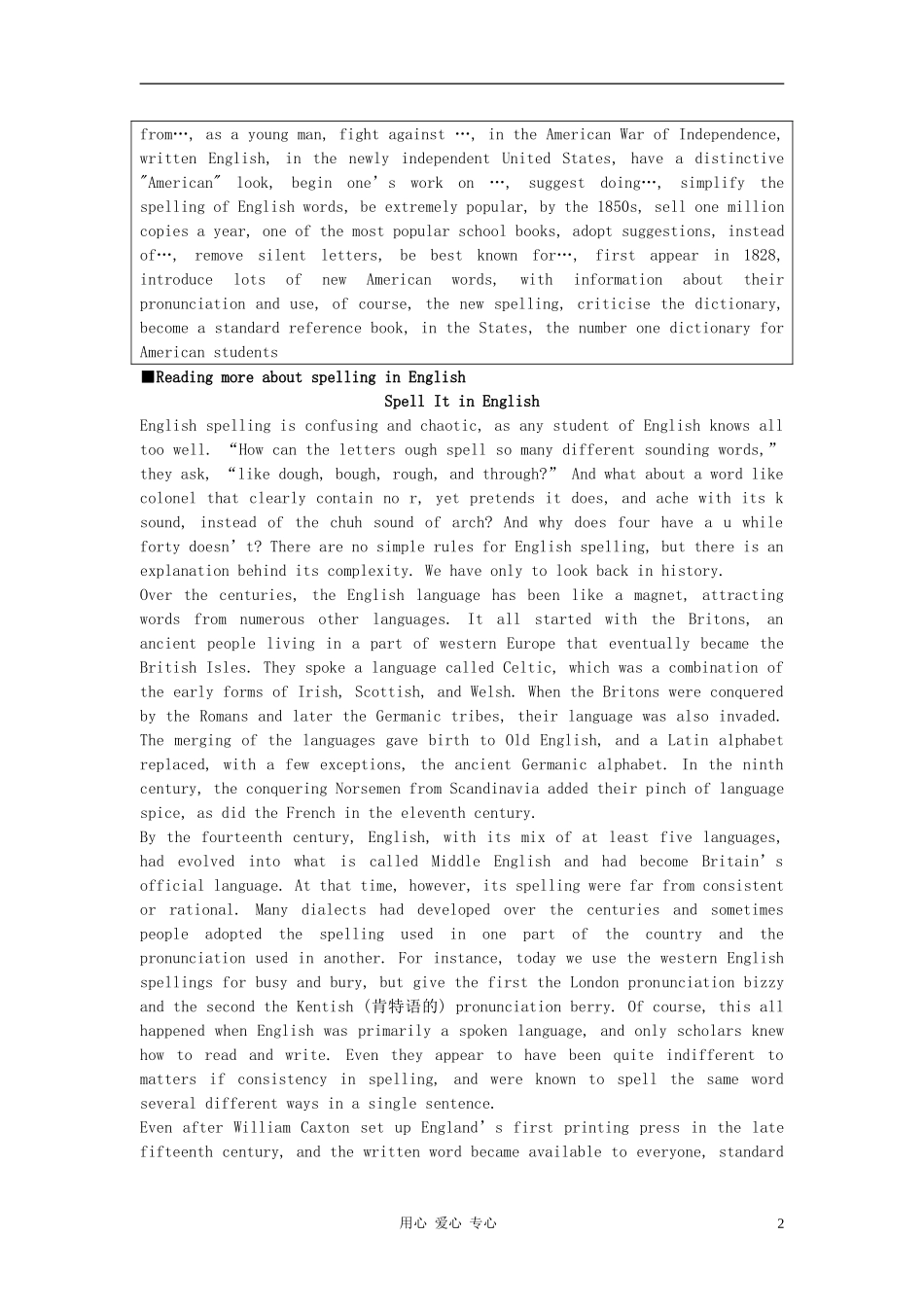Period 5: CULTURAL CORNER—The Man Who Made Spelling SimpleObjectives●To read to know more about language●To read more about spelling in EnglishProcedures▇ Before you readPlease go over the word list for this module, paying attention to the pronunciation of the word, the relationship between its pronunciation and its spelling.▇While you readCut/ the sentences into thought groups, blacken the predicates, underline the useful expressions and darken the connectives.The Man Who Made Spelling SimpleIn English/ the spelling of words does not always represent the sound . So people say /rait/ but spell it right, or write, or even rite. Combinations of letters (like ough) may be pronounced/ in a number of ways. And/ some words just seem to have too many letters.For Americans/ things are a little bit easier, thanks to the work of Noah Webster, a teacher/ who graduated from Yale University/ in1778. As a young man/ he had fought against the British/ in the American War of Independence, and he felt that/ written English/ in the newly independent United States/ should have a distinctive "American" look.So/ he began his work/ on American English. His first book, The Elementary Spelling Book, suggested simplifying the spelling of English words .The book was extremely popular. By the 1850s/ it was selling one million copies/ a year, making it one of the most popular school books/ ever.Many of the suggestions were quickly adopted. Center instead of centre, program/ instead of programme, and flavor/ instead of flavour. Others, however, such as removing silent letters like s/ in island/ or the final e/ in examine, were not.Webster is best known/ for his American Dictionary of the English Language, which first...


